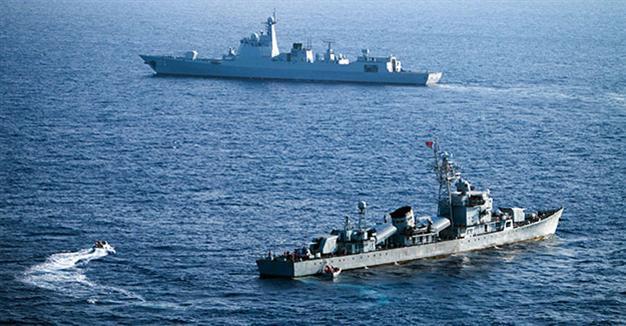China says to hold drills with Russia in South China Sea
BEIJING

This file photo taken on May 5, 2016 shows crew members of China's South Sea Fleet taking part in a drill in the Xisha Islands, or the Paracel Islands in the South China Sea. AFP photo
China and Russia will hold “routine” naval exercises in the South China Sea in September, Chinese Defense Ministry said on July 28, adding that the drills were aimed at strengthening their cooperation and were not aimed at any other country.The exercises come at a time of heightened tension in the contested waters after an arbitration court in the Hague ruled this month that China did not have historic rights to the South China Sea and criticized its environmental destruction there.
China rejected the ruling and refused to participate in the case.
“This is a routine exercise between the two armed forces, aimed at strengthening the developing China-Russia strategic cooperative partnership,” Chinese Defense Ministry spokesman Yang Yujun was quoted as saying by Reuters at a regular monthly news conference.
“The exercise is not directed against third parties.”
Yang did not disclose the specific location, according to the Associated Press, and some areas of the South China Sea are not disputed.
China and Russia are veto-wielding members of the U.N. Security Council, and have held similar views on many major issues such as the crisis in Syria, putting them at odds with the United States and Western Europe.
Last year, they held joint military drills in the Sea of Japan and the Mediterranean.
China claims most of the South China Sea, through which more than $5 trillion of trade moves annually. Brunei, Malaysia, the Philippines, Taiwan and Vietnam have rival claims.
China has repeatedly blamed the United States for stoking tension in the region through its military patrols, and of taking sides in the dispute.
The United States has sought to assert its right to freedom of navigation in the South China Sea with its patrols and denies taking sides in the territorial disputes.
“These drills deepen mutual trust and expand cooperation, raise the ability to jointly deal with security threats, and benefit the maintenance of regional and global peace and stability,” Yang said.
















